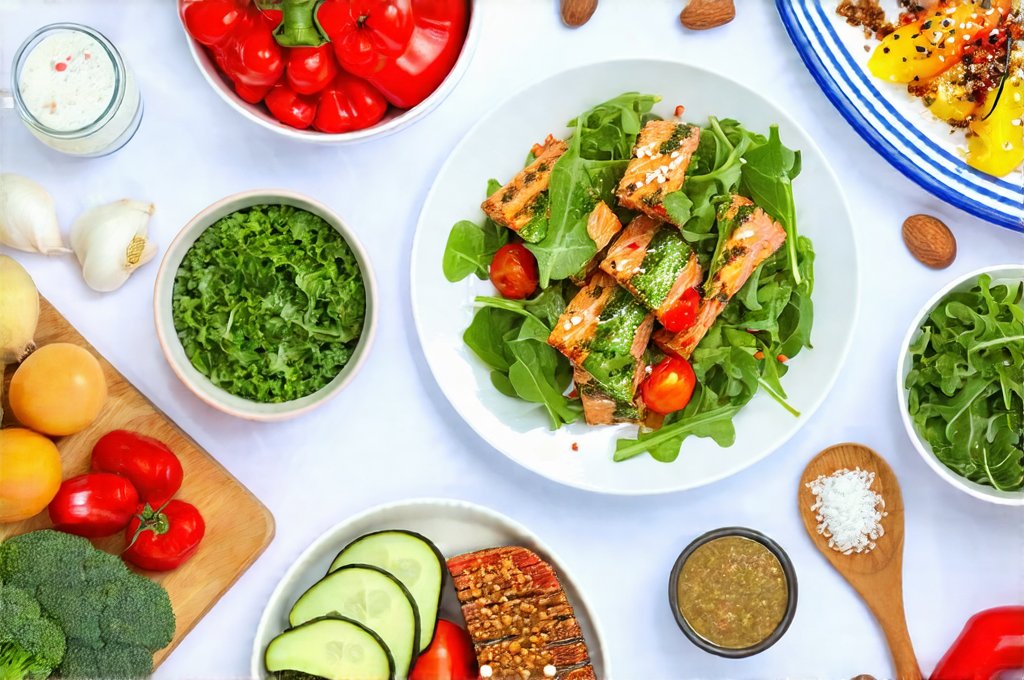As women move beyond their thirties, metabolic changes, hormonal shifts, and increased life demands often necessitate a reassessment of dietary habits. What worked in your twenties might no longer deliver the same energy levels or support overall wellbeing. Many find themselves battling fatigue, struggling with weight management, or simply feeling less resilient. This isn’t necessarily about restrictive dieting; it’s about intelligent fueling – understanding how your body’s needs evolve and adapting your nutrition to meet them. A well-crafted meal plan can be a powerful tool for reclaiming vitality, enhancing performance, and navigating this new phase of life with confidence.
The key is shifting from focusing on calorie restriction to prioritizing nutrient density. This means choosing foods that pack the most vitamins, minerals, and antioxidants into each bite while also providing sustained energy. It’s about recognizing that food isn’t just fuel; it’s information for your body, influencing everything from mood and sleep to hormonal balance and immune function. A successful plan acknowledges the complexities of a woman’s life – balancing career, family, personal commitments – and aims for practicality alongside nourishment. This article will explore how to build an energy-focused meal plan specifically designed for women over 30, emphasizing sustainable habits rather than quick fixes.
Understanding Your Evolving Nutritional Needs
Women experience significant physiological changes after age 30, impacting their nutritional requirements. Metabolism naturally slows down, meaning the body burns fewer calories at rest. This isn’t a cause for alarm but requires adjusting portion sizes and focusing on lean muscle mass – building and maintaining muscle helps boost metabolism. Hormonal fluctuations, particularly as perimenopause approaches, also play a crucial role. Estrogen decline can lead to changes in fat distribution, increased insulin resistance, and mood swings, all of which are influenced by diet.
Beyond metabolic and hormonal shifts, lifestyle factors often change too. Increased stress levels from work or family responsibilities demand greater nutrient support for adrenal function and nervous system regulation. Sleep patterns may become less consistent, requiring dietary adjustments to promote restful sleep. It’s essential to recognize these interconnected factors when designing a meal plan; it’s not simply about cutting out certain foods but about strategically incorporating others to address specific needs. Prioritizing protein intake is paramount, as it supports muscle maintenance, helps regulate blood sugar levels, and promotes satiety.
A proactive approach to nutrition involves understanding your individual body. Paying attention to how different foods make you feel – energy levels, digestion, mood – can provide valuable insights into what works best for you. This isn’t about adhering to a rigid set of rules; it’s about creating a personalized plan based on your unique needs and lifestyle. Consider consulting with a registered dietitian or nutritionist for individualized guidance tailored to your specific circumstances.
Building Blocks of an Energy-Focused Plan
A solid foundation for any energy-focused meal plan centers around whole, unprocessed foods. This means prioritizing:
– Lean Protein Sources: Chicken, turkey, fish (salmon, tuna), eggs, beans, lentils, tofu. Aim for at least 20-30 grams of protein per meal.
– Complex Carbohydrates: Whole grains (quinoa, brown rice, oats), sweet potatoes, fruits, and vegetables. These provide sustained energy release compared to refined carbohydrates.
– Healthy Fats: Avocado, nuts, seeds, olive oil, fatty fish. Essential for hormone production, brain function, and nutrient absorption.
Hydration is also critical. Aim for at least 8 glasses of water per day, and consider incorporating herbal teas or infused water for added flavor and benefits. Reducing processed foods, sugary drinks, and excessive caffeine intake are equally important steps towards optimizing energy levels. Don’t demonize food groups but focus on making informed choices.
Sample Meal Structure & Timing
A consistent meal structure can help regulate blood sugar levels and prevent energy crashes. Here’s a sample framework:
1. Breakfast (within 1 hour of waking): Focus on protein and complex carbohydrates. Examples include oatmeal with berries and nuts, Greek yogurt with fruit and granola, or eggs with whole-wheat toast and avocado.
2. Mid-Morning Snack: A small snack to bridge the gap between breakfast and lunch. Options include a handful of almonds, an apple with peanut butter, or a hard-boiled egg.
3. Lunch: Balanced meal with lean protein, complex carbohydrates, and healthy fats. Consider a salad with grilled chicken or fish, lentil soup with whole-grain bread, or quinoa bowl with roasted vegetables and tofu.
4. Afternoon Snack: Similar to the mid-morning snack, focusing on sustained energy. A small portion of trail mix, carrots with hummus, or a protein shake can be good choices.
5. Dinner: Lighter meal emphasizing lean protein and vegetables. Baked salmon with steamed broccoli and sweet potato is an excellent example.
Timing your meals strategically can also make a difference. Avoid skipping breakfast, as it sets the tone for the day. Eating every 3-4 hours helps maintain stable blood sugar levels and prevents overeating later on. Experiment to find what timing works best for your body and schedule.
Practical Tips for Sustainable Implementation
Implementing an energy-focused meal plan doesn’t have to be overwhelming. Here are some practical tips:
– Meal Prep: Dedicate a few hours each week to prepping ingredients or entire meals, saving time during busy weekdays.
– Grocery Shopping Strategy: Create a shopping list based on your meal plan and stick to it, avoiding impulse purchases of unhealthy snacks.
– Hydration Reminders: Keep a water bottle readily available throughout the day and set reminders to drink regularly.
– Mindful Eating: Pay attention to hunger cues and eat slowly, savoring each bite.
– Flexibility & Self-Compassion: Allow for occasional indulgences without guilt; it’s about creating a sustainable lifestyle, not achieving perfection. Remember that setbacks are normal – don’t let them derail your progress. Focus on long-term habits over quick fixes.




